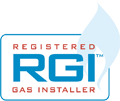Lead Contamination of Drinking Water in Ireland
It is estimated that up to 200,000 homes in Ireland could be affected by lead contamination said Jerry Grant, Head of Asset Management for Irish Water, after the company found lead pipes in approx 26.000 Irish homes. The company has now started contacting the affected customers to inform them.
In order to address the issue Irish Water is working alongside the EPA to agree on a definitive national strategy.
The Health Executive is also involved, with a proposal to utilise a phosphate-type chemical, which added to the water would create a coating that adheres to the inside of the pipes, therefore diminishing the exposure of water to lead; the drinking water would however become more acidic.
Any house constructed up to 1970 could be served by lead pipes and while Irish Water can be accounted responsible for the public pipes’ system (that is anywhere outside the boundaries of private properties) it is up to the individual homeowners to maintain pipes within their properties. The company is therefore inviting consumers not only to check their pipes but also to take action and upgrade their system if necessary: thousands of households will clearly need financial support to implement the changes.
According to a survey carried out by meter installers for Irish Water, problems of lead contamination may be affecting 10% of South Dublin Households.
Bottle-fed infants and young children are the ones at the highest risk of suffering from contamination problems, since most of their food comes from formula made up of drinking water.
Gerard O’Leary, director of EPA’s office of environmental enforcement, recognises that investment to improve the water supply is urgent and it should mainly affect upgrades in the disinfection systems and removal of lead water pipes; also improvements in water treatment management are necessary in order to prevent future restrictions.
Irish Water has estimated the costs for replacing lead pipes and treating water over the next few years, for an amount of €300 million.







